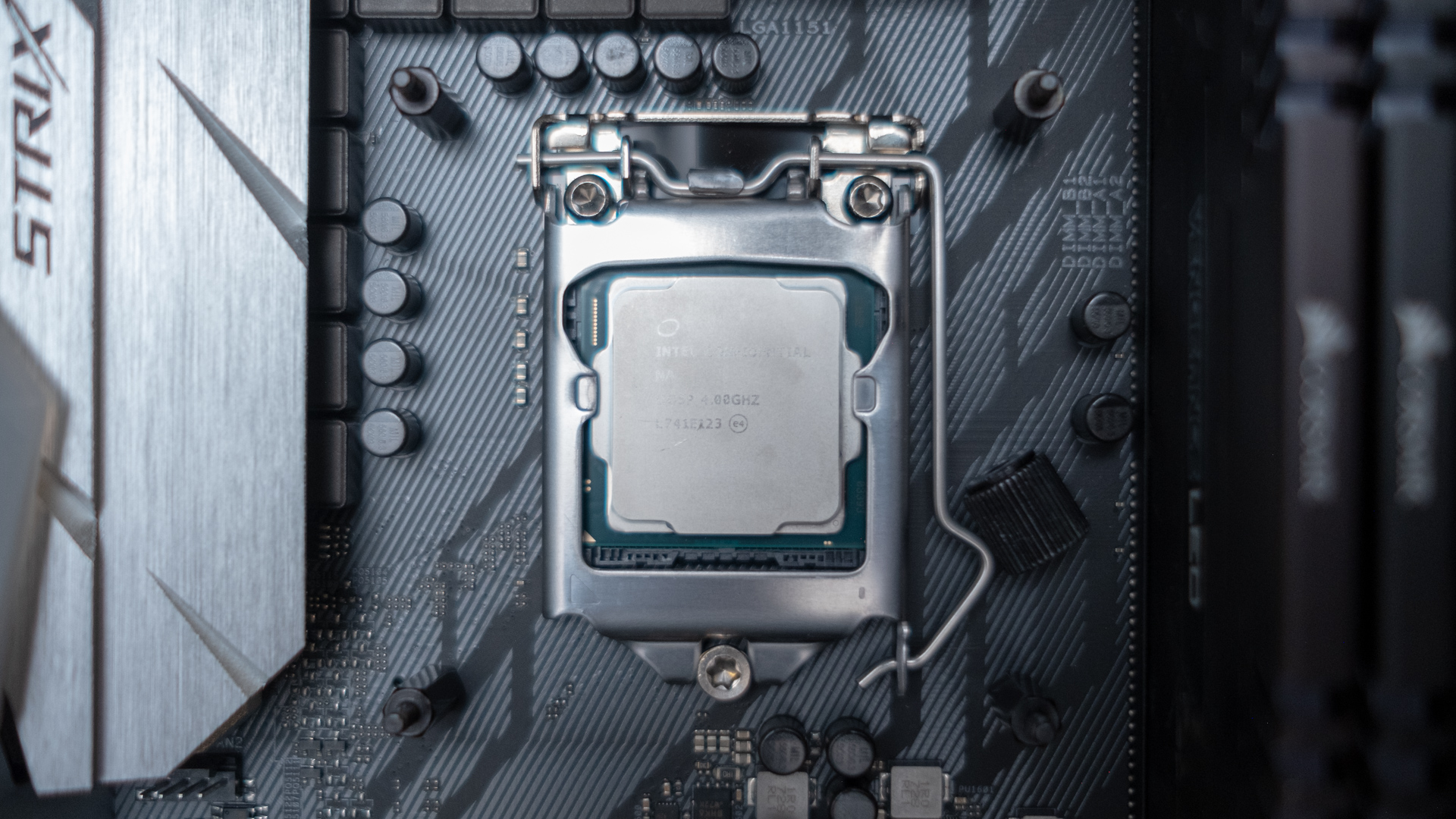TechRadar Verdict
The Intel Core i7-8086K is disappointingly not the fastest Coffee Lake processor ever, but its immense overclocking capabilities will interest die hard enthusiasts.
Pros
- +
Overclocks like a champ
Cons
- -
Benchmark scores equal to Core i7-8700K
- -
Slightly pricier for small speed bump
- -
5.0GHz boost clock refers to single-core Turbo Boost
Why you can trust TechRadar
The Intel Core i7-8086K is a special processor for a multitude of reasons. It’s one of Intel’s very rare, limited-edition run processors, while also simultaneously celebrating the 40th anniversary of the original 8086 CPU and Intel’s own 50th anniversary. Aside from celebrating those occasions, it’s also Intel’s first consumer processor to hit 5.0GHz without overclocking.
That all said, you can basically boil this part down to a cherry-picked Intel Core i7-8700K with a 300MHz bump in frequency for a small premium in price. Despite what should be a faster overall chip, our testing reveals a CPU that sadly isn’t any more performant – unless you’re an overclocking enthusiast.
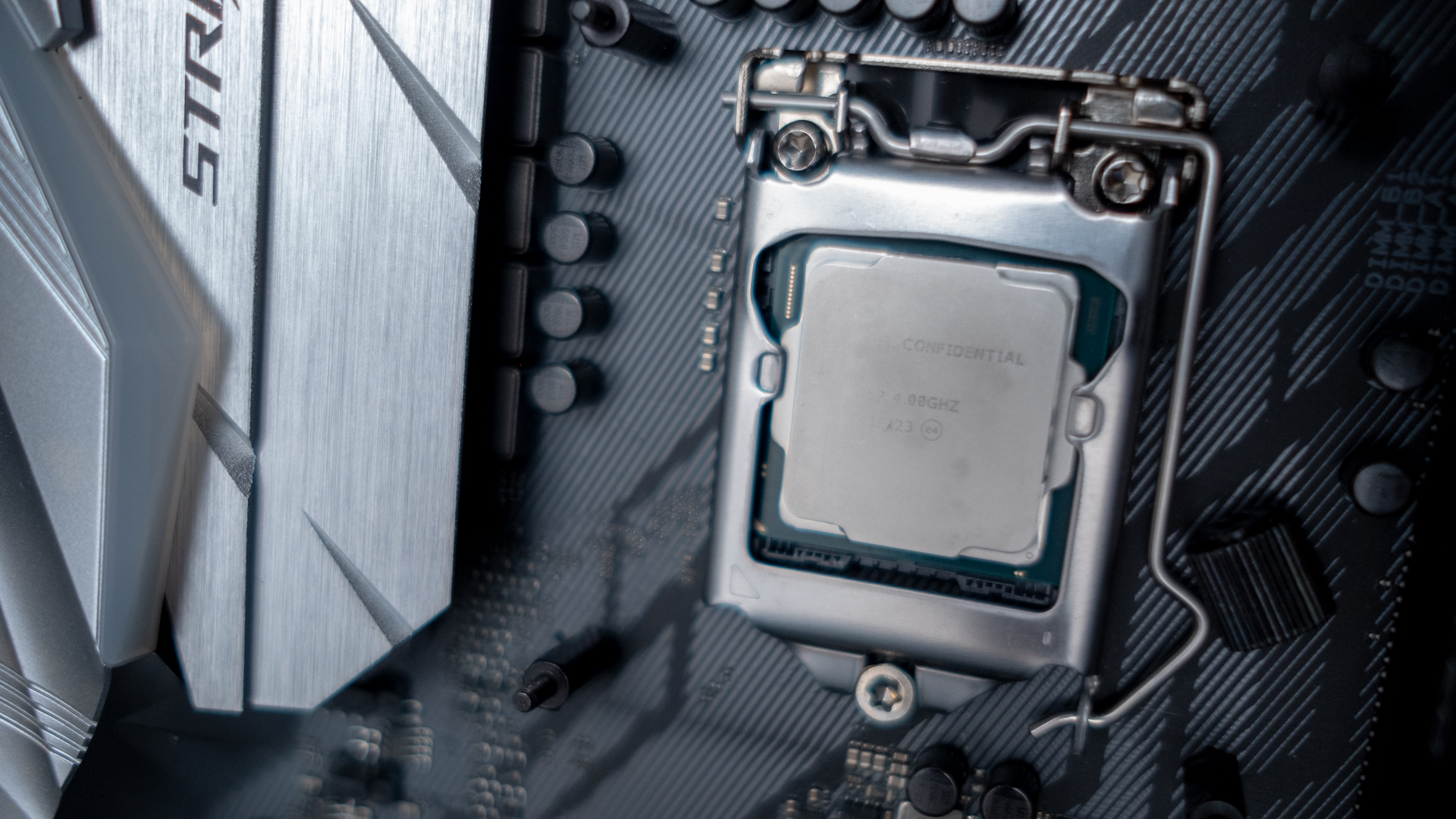
Cores: 6
Threads: 12
Base clock: 4.0Hz
Boost clock: 5.0GHz
L3 cache: 12MB
TDP: 95W
Pricing and availability
The $425 (about £379, AU$629) Intel Core i7-8086K is a smidge more expensive than its closest rival – and apparent twin – the $349 (£319, AU$499) Intel Core i7-8700K. As we mentioned before, that slight premium comes from this CPU’s 300MHz higher base and boost clock speeds, but the processors are otherwise practically identical.
Also bear in mind that the 8086K doesn’t have limited-edition in its name just for dramatic effect. Rather this is a truly limited run with reportedly only 50,000 units in total, so the availability of this chip won’t last forever.
In the Team Red corner, the AMD Ryzen 7 2700X is a strong contender both in performance and its lower $329 (£299, AU$469) price tag. This flagship Ryzen 2nd Generation part also has a leg up, thanks to its higher eight-core and 16-thread counts, even though it’s a little slower in frequency.
Features and chipset
We’ve said it before and we’ll say it again, the 8086K and 8700K are basically the same processor aside from the former being a little faster. They share the same exact six-core and 12-thread arrangement. Both chips are also built upon the same third-generation 14nm Coffee Lake architecture.
However, Intel has told us that it has refined its 14nm++ process and power delivery on this limited-edition processor, which at least lends it greater overclocking capabilities that we’ll get into later.
Sign up for breaking news, reviews, opinion, top tech deals, and more.
The Intel Core i7-8086K sockets into the now well established Z370, H370, B360 and H310 platforms. We’re testing this chip on the high-end Z370 motherboard, which features some of the best power on Intel platforms yet and that also plays into the 8086K’s impressive overclocking performance.
Still, the Z370 chipset can feel a little limiting at points, considering it supports only dual-channel memory and only 16 PCIe lanes (out of a total 40) directly connected to the CPU.
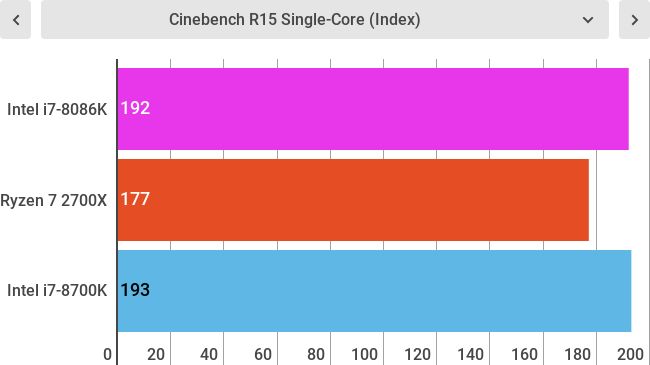
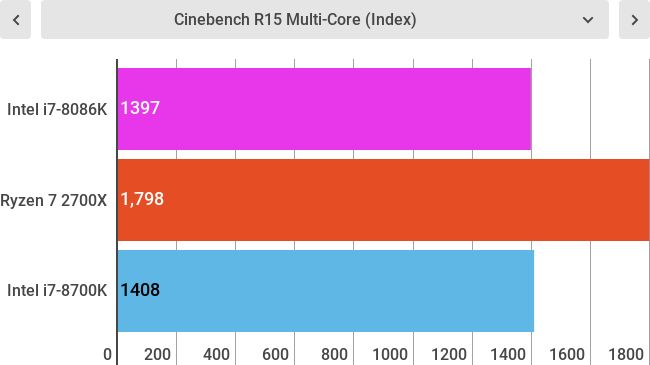
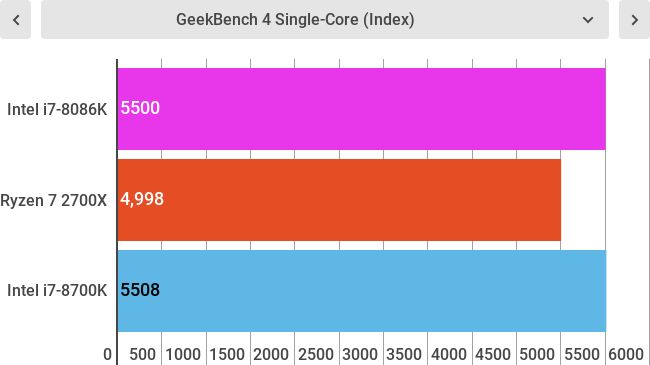
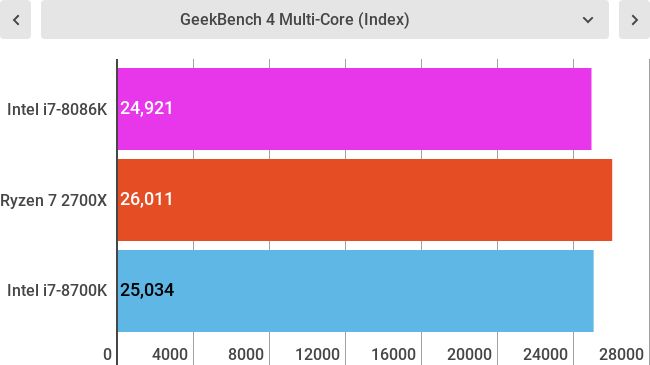
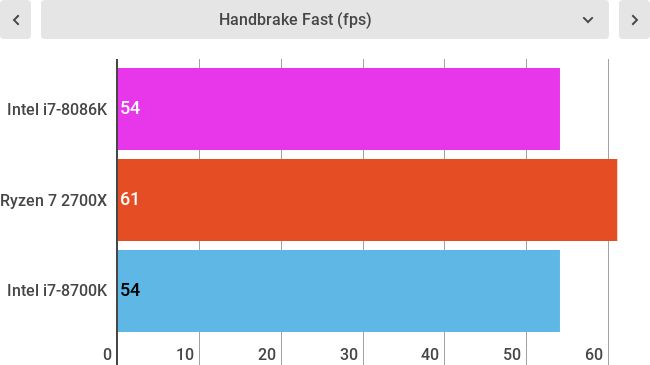
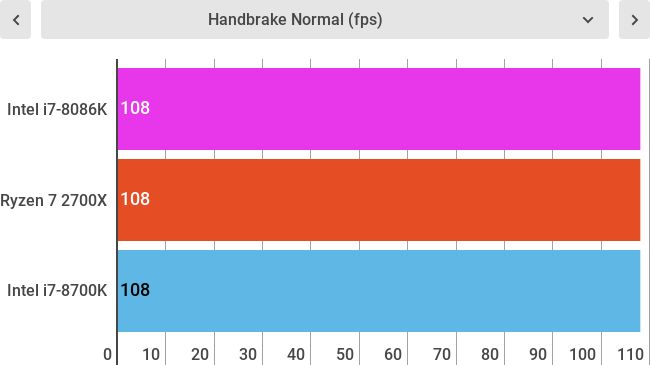
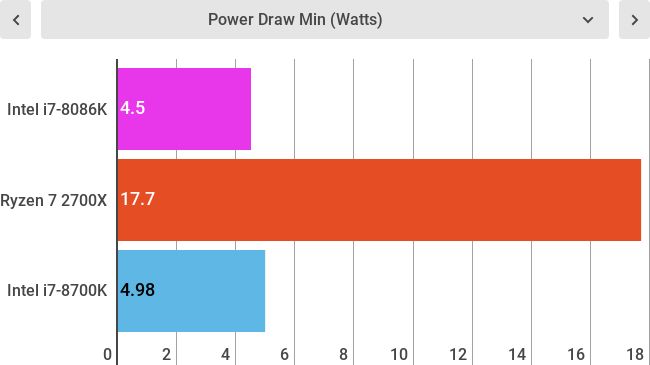
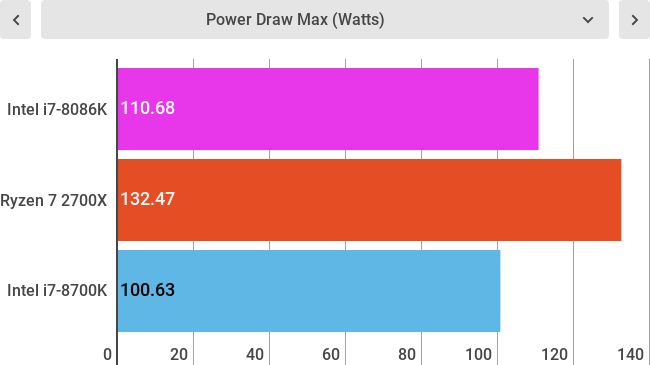
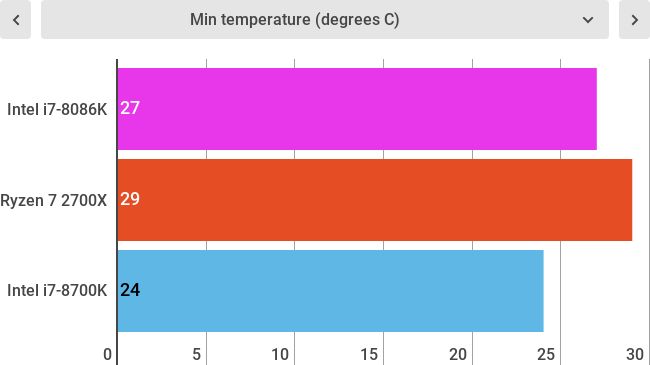
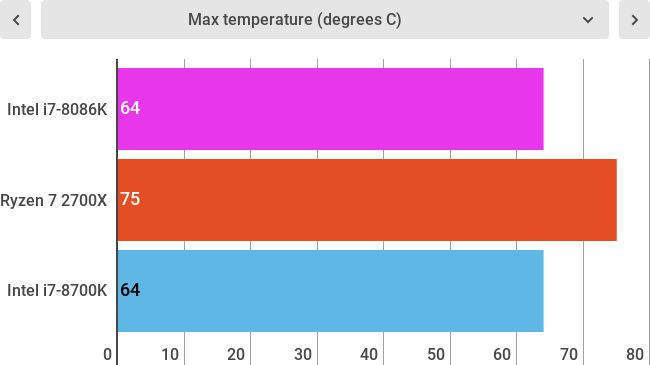
Performance
With 300 extra megahertz of frequency in tow, we expected the Intel Core i7-8086K to perform decently better in at least some of our benchmarks, but this is exactly where we are most disappointed.
In our testing, the 8086K performs no better, and sometimes even scores a little lower, than the 8700K in every single benchmark. Likewise, Intel’s limited-edition CPU couldn’t overcome the AMD Ryzen 7 2700X’s multi-core advantage. This lack of extra performance also disappointingly extends to the in-game benchmarks.
We were so baffled that we reran every test five-times over just to make sure it wasn’t a fluke, but sure enough this 5GHz processor never pulls ahead of the chip it’s designed to outpace.
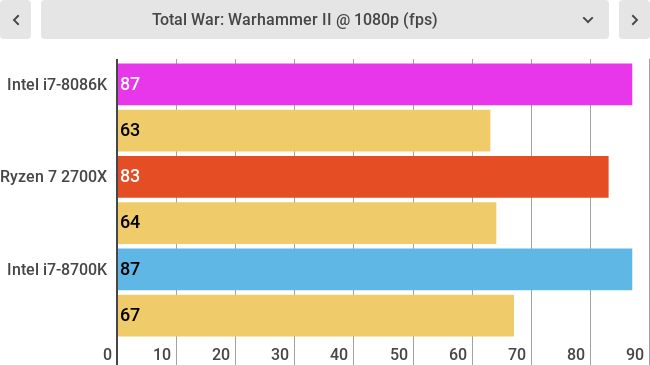
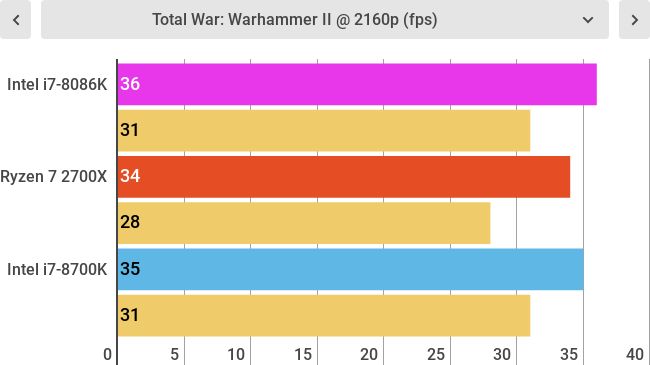
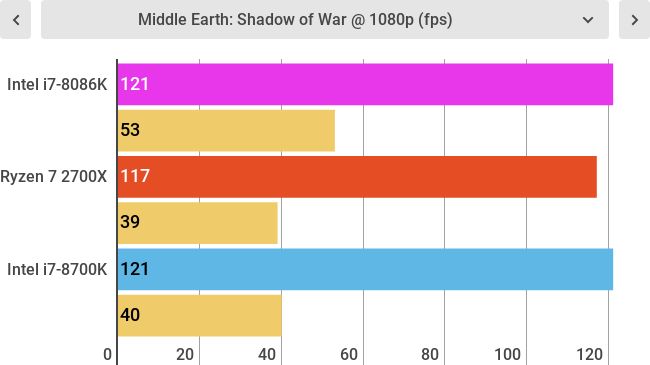
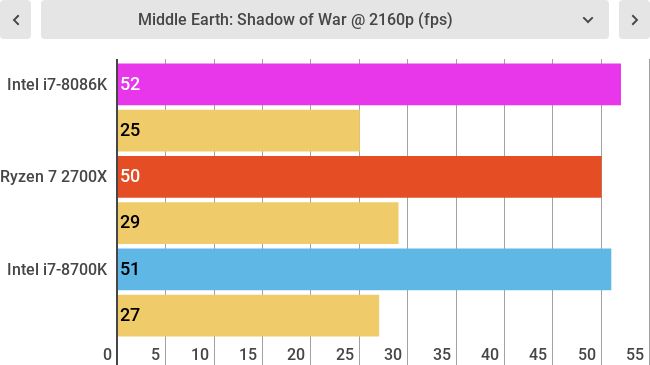
As nice as the extra 300MHz in stock frequencies looks on paper, it unfortunately doesn’t provide much more performance in real life. The CPU breezes past its 4.0GHz base clock at the slightest whiff of activity, as would the Intel Core i7-8700K.
Meanwhile, the rated 5.0GHz only refers to the chip’s single-core Turbo Boost, which is a capability few, if any at all, programs will take advantage of, unless they’ve been coded specifically to only push a single core. Cinebench R15 has one of these such processes, but as our testing shows, the 8086K scores a point lower in a benchmark it should have aced.
This processor’s only saving grace is its willingness to overclock to extreme levels. Our own 8086K can achieve a 5.3GHz overclock with a little extra voltage and turning up the speed on our memory. By comparison, the Intel Core i7-8700K maxes out at 5.1GHz after failing to hold a stable overclock at 5.2Ghz.
While greater overclocking capability is great and all, it’s hardly a feature Intel ever advertises. If anything, Intel more often dissuades users from taking the risk and locking the clock multiplier on all but its K processors.
Overclocking on Intel CPUs is also still an opaque process of going into bios and manually tweaking voltages and other settings. Whereas, AMD makes the process easy for anyone to do from the Windows 10 desktop with Ryzen Master.
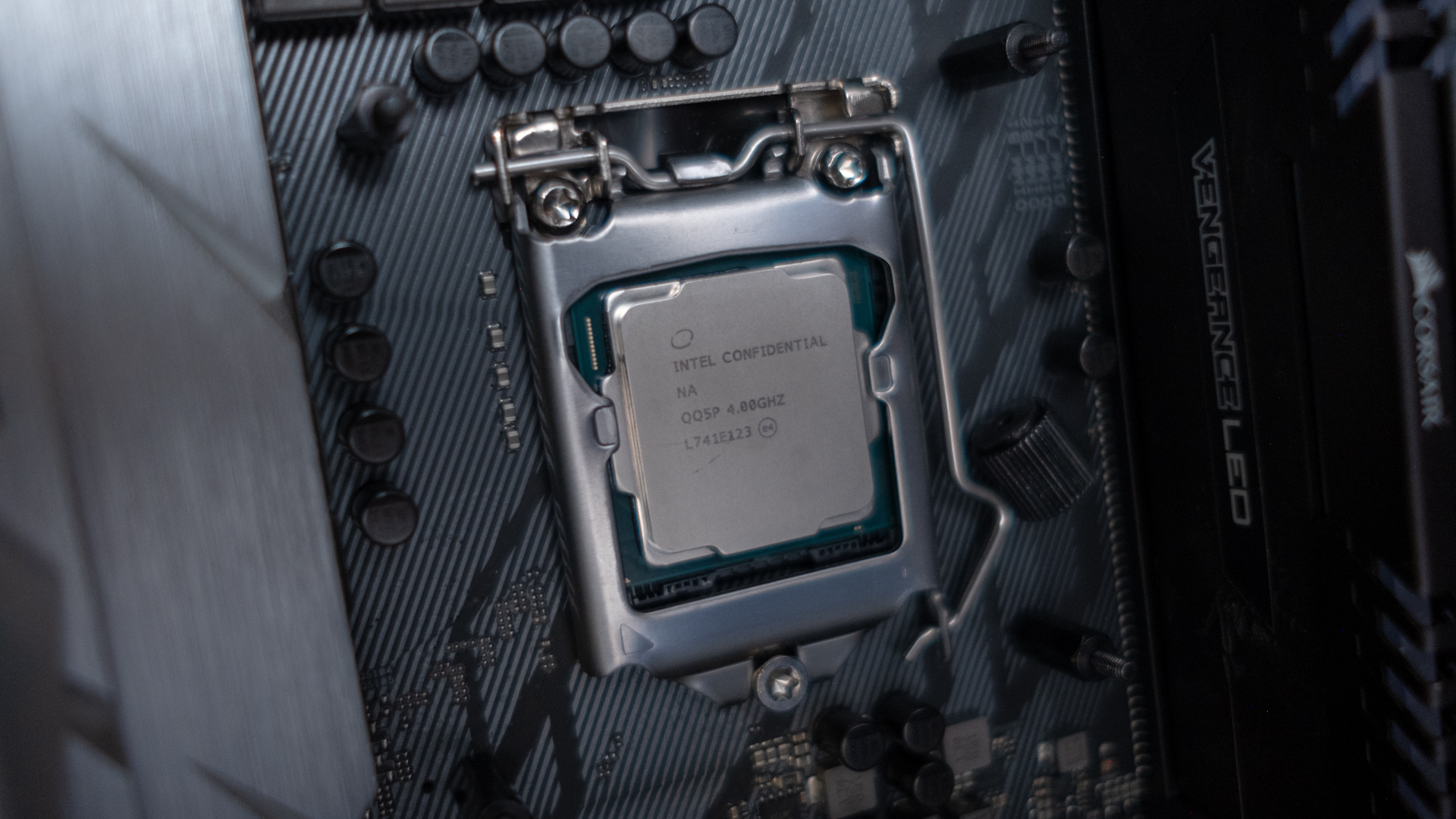
Final verdict
If you pick up an Intel Core i7-8086K expecting it to be the fastest Coffee Lake processor ever out of the box, you’ll be sorely disappointed. This limited-edition processor performs no better than an Intel Core i7-8700K, so you’re better off saving the extra $75 (£60, AU$130) this chip asks for and get the latter instead. Gamers need not apply to this 5.0GHz CPU either, as it doesn’t deliver any more frames per second.
However, if you’re looking for a CPU that is incredibly stable at high overclocks, Intel has engineered an amazing piece of silicon. We just wished that Intel would improve the experience of doing so and not lock down the ability to do so behind its most expensive processor.

Kevin Lee was a former computing reporter at TechRadar. Kevin is now the SEO Updates Editor at IGN based in New York. He handles all of the best of tech buying guides while also dipping his hand in the entertainment and games evergreen content. Kevin has over eight years of experience in the tech and games publications with previous bylines at Polygon, PC World, and more. Outside of work, Kevin is major movie buff of cult and bad films. He also regularly plays flight & space sim and racing games. IRL he's a fan of archery, axe throwing, and board games.
